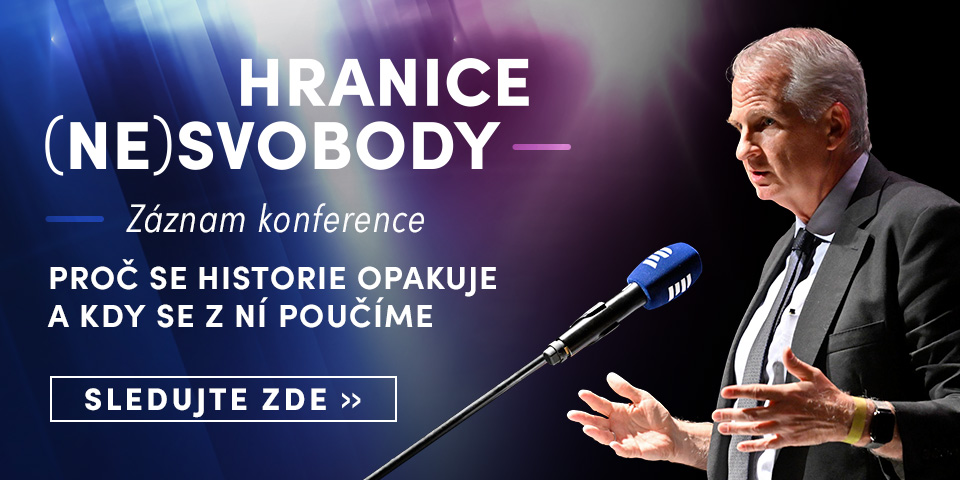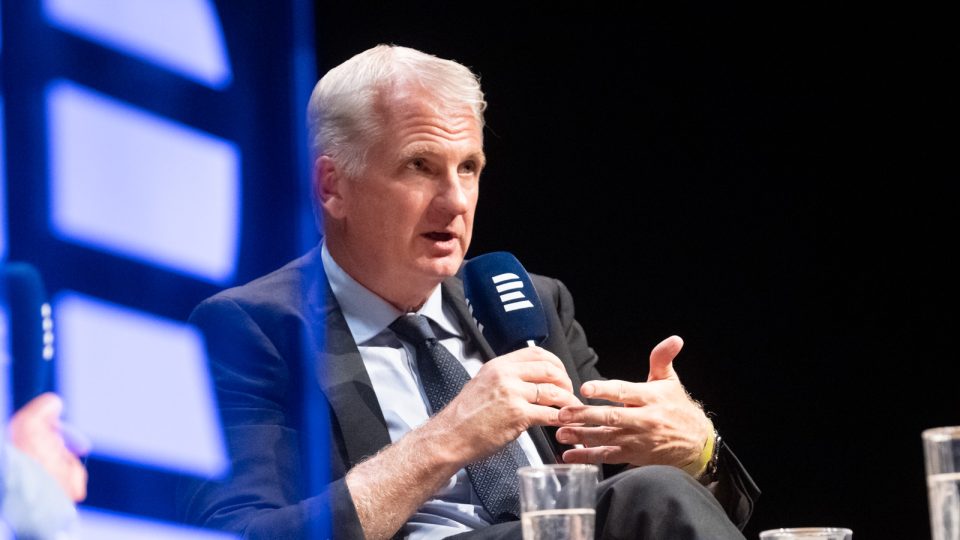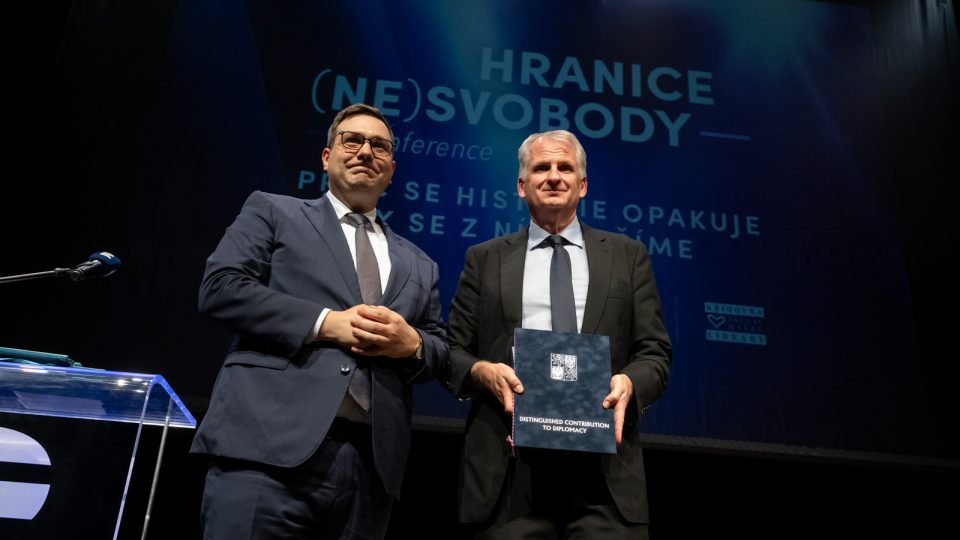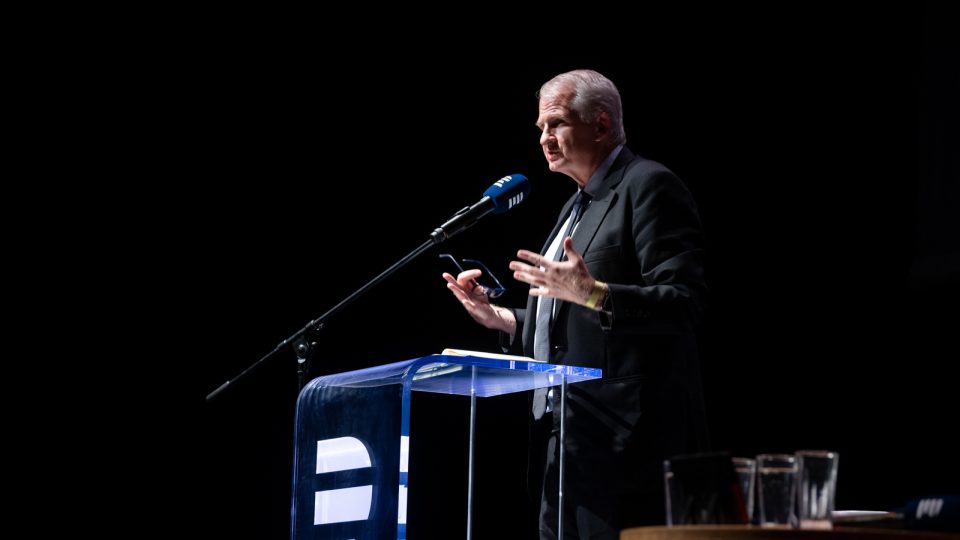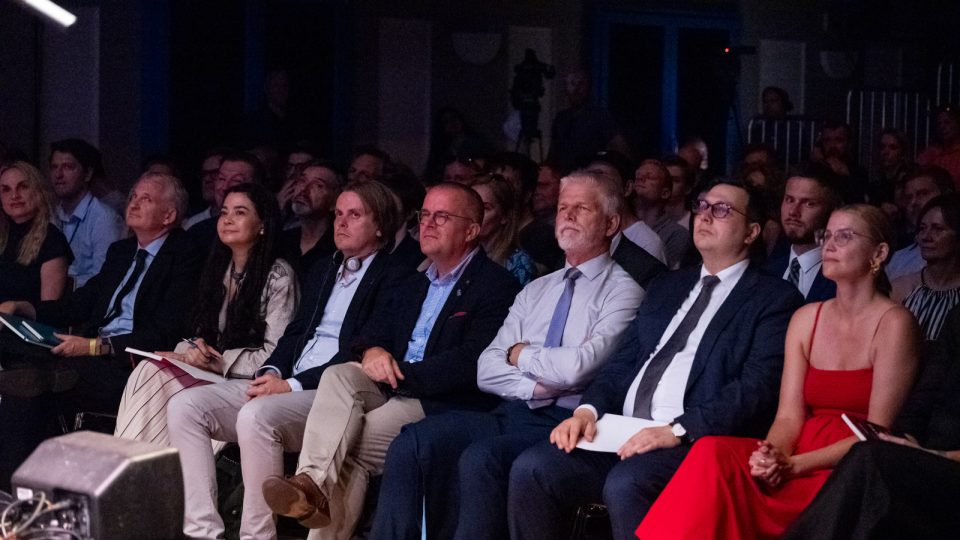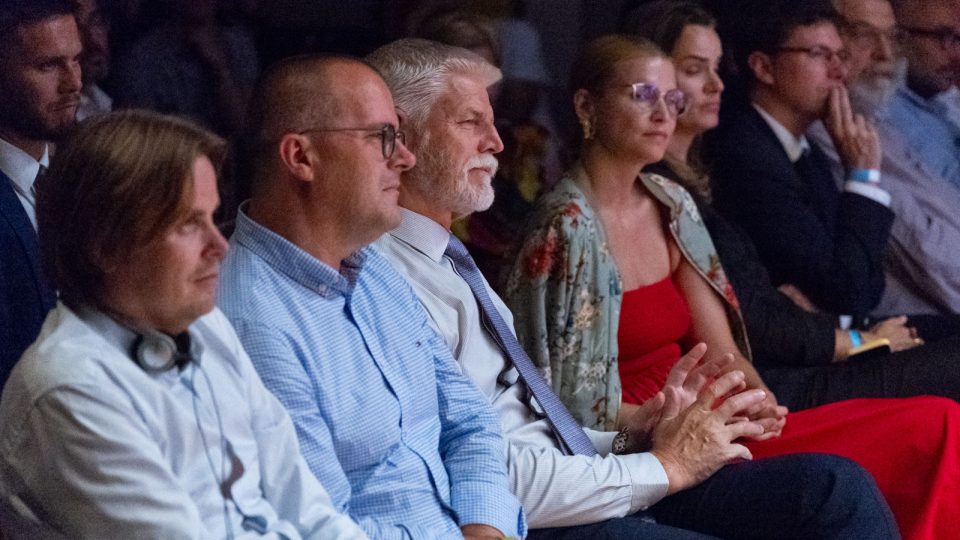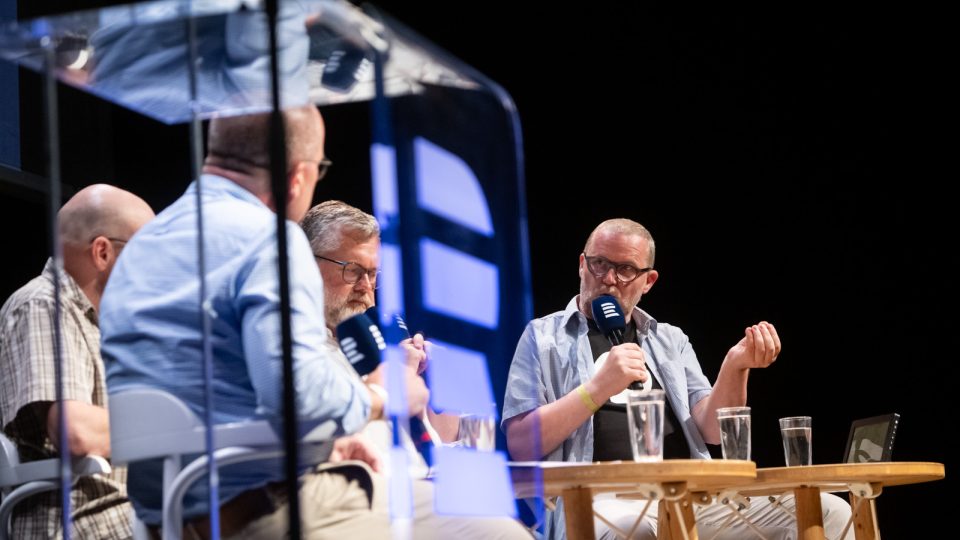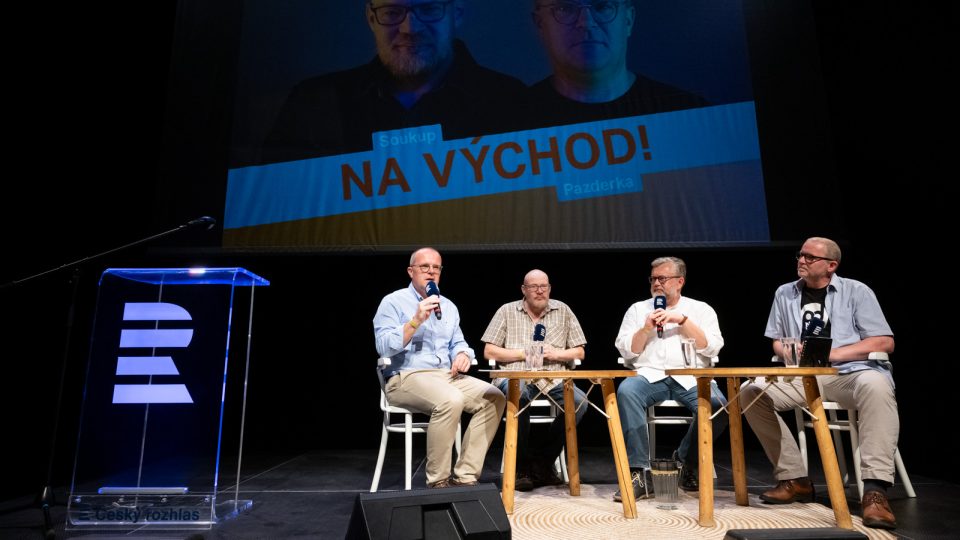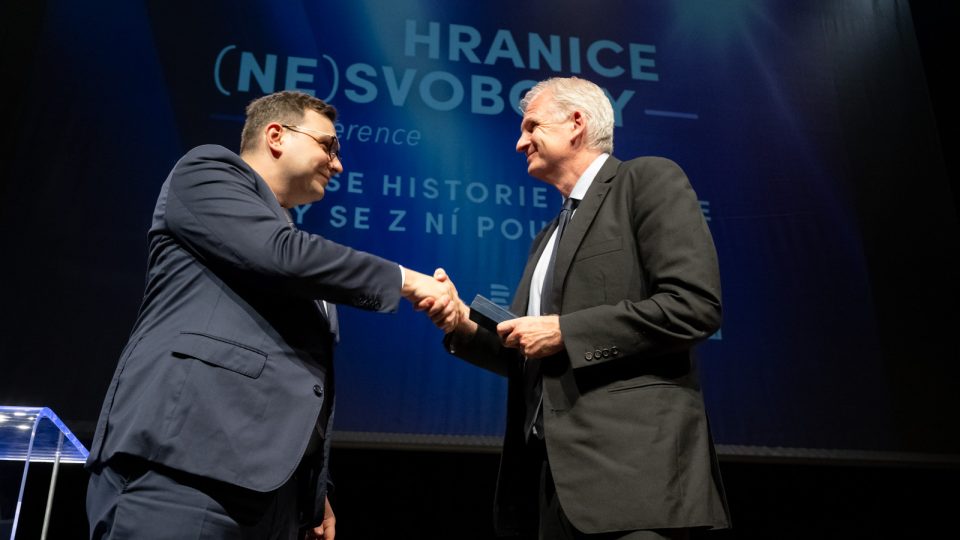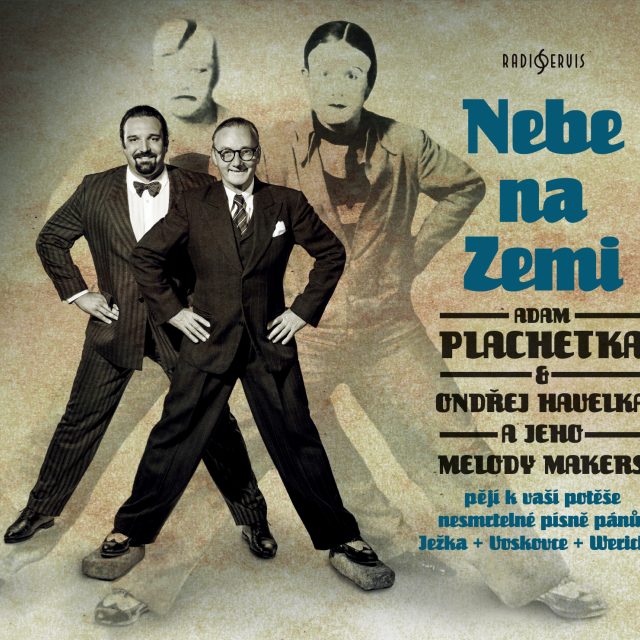„We should be asking when Russia will lose.“ Snyder and Musayeva met at Borders of (Un)Freedom conference
“Freedom is closely linked to unpredictability,” said Yale Historian Timothy Snyder at a Prague conference titled Borders of (Un)Freedom. The conference, organized by Czech Radio and Václav Havel Library, began with live recordings of the podcasts Error of the System (Chyba systému), which focused on the growth of the far right, and To the East! and Rewrite History (Na Východ! a Přepište dějiny), which focused on the crushing of the Prague Spring.
The evening ended with a moderated panel between Ukrainian journalist Sevgil Musayeva and Snyder about Russia’s war on Ukraine.
“We are in a kind of rationality trap. We believe we are free, but we are not,” said Snyder, an American historian and professor at Yale University, in the keynote lecture of the conference Borders of (Un)Freedom. In doing so, he referenced former Czech President Václav Havel and his understanding of freedom, as outlined in his seminal essay, “The Power of the Powerless.”
In line with Havel, Snyder lamented how society continues to be shaped by the irrationality of our ancestors who would consult oracles and sacrifice animals and children to gods. Instead of blood sacrifice, today, we give “carbon sacrifices” on the altars of the oligarchs, sacrificing the future of our planet. “If we did not regularly sacrifice to the modern-day oracles, Vladimir Putin would not exist in such strength,” the historian stressed.
In a moderated panel with Ukrainian journalist and editor-in-chief of the Ukrainska Pravda, Sevgil Musayeva, the two discussed the importance of investigative journalism, the future of the war in Ukraine, and how to best understand Putin’s motivations for invading Ukraine.
Professor Snyder and Ms. Musayeva agreed that the aggression in Ukraine threatens the rest of the world as much as it does Ukraine. “I want you to think about the protection of international borders and international law. Tomorrow another state may want to change borders if we allow Russia to do it,” the Ukrainian journalist warned.
“We, as Ukraine’s allies, should not ask ourselves when Ukraine will lose, but when Russia will lose,” the historian built on Ms. Musayeva’s remarks.
Čtěte také
“Russian propaganda is losing its narrative,” Snyder added. Russia is a regional power, it can only continue the war against Ukraine if Ukraine’s Western allies fail to support its resistance. “Russia is only at this stage for a while.It's not going to continue down this path indefinitely,” he predicted.
Loss of security?
Czech Radio’s Plus channel also took the opportunity to record live podcast episodes for two of its platforms. The first was devoted to the resurgence of the far-right in Europe which the guests of the podcast Error of the System (“Chyba systému”) discussed.
The rise in popularity of extreme politicians is linked to the perception that democracy is no longer safe, according to journalist Apolena Rychlíková. “By selling fear, the radical right succeeds in turning non-voters into voters,” the political scientist Petra Guasti pointed out.
Russians on tanks
The next stage at the conference, moderated by the hosts of the podcast To the East! and Rewrite History (“Na Východ! a Přepište dějiny”), was devoted to “The perspective of the people who came on tanks,” namely the crushing of the Prague Spring. August 1968 was “a successful military invasion, but it failed politically,” said columnist Martin Groman.
“They failed in their propaganda. They made the Czechoslovaks victims,” added historian Martin Stehlík.
The Russians themselves perceived the invasion differently, according to Czech Radio journalist Ondrej Soukup. “They were held for several weeks or months in isolated bases, where they were told that the North Atlantic Alliance was on the borders of Czechoslovakia and we had to help them,” he recalled.
Czech society, Soukup said, is still able to learn lessons from this historical episode today: “What surprised me in February 2022 was how positively the vast majority of Czech society reacted.”
“Even though it’s been more than two years since Russia’s full-scale invasion, Czech support for Ukraine continues. Let’s hope it will hold,” he added.
Nejposlouchanější
Více o tématu
E-shop Českého rozhlasu
Závěr příběhu staré Karviné, který měl zůstat pod zemí
Karin Lednická, spisovatelka


Šikmý kostel 3
Románová kronika ztraceného města - léta 1945–1961. Karin Lednická předkládá do značné míry převratný, dosavadní paradigma měnící obraz hornického regionu, jehož zahlazenou historii stále překrývá tlustá vrstva mýtů a zakořeněných stereotypů o „černé zemi a rudém kraji“.

